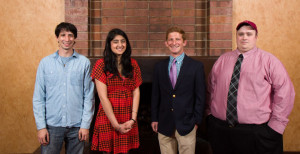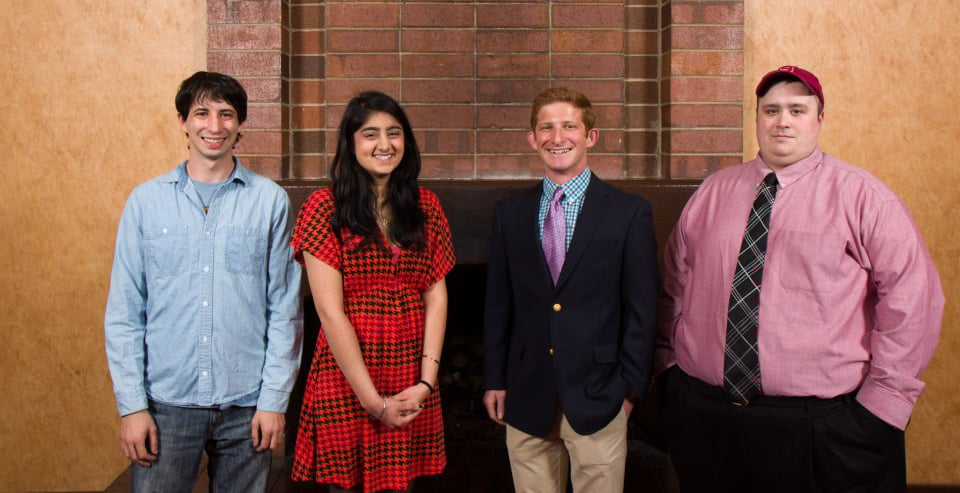For the last two decades, Stanford’s policy debate team has been largely absent from the national circuit, last qualifying for the National Debate Tournament in 1992. Debate juggernauts Northwestern, Harvard and Dartmouth have collected a combined 26 championships; Stanford doesn’t have a single one.

That dubious streak, however, may be nearing an end. Stanford’s policy debate team turned some heads at the 67th National Debate Tournament (NDT) as a freshman-sophomore team led by a new full-time policy coach entered the elimination rounds as the 22nd best team in the country.
“This was our first real year having a policy program,” said Sukhi Gulati ’16, one of Stanford’s debaters at the NDT. “Being a freshman was a huge deal. There was a buzz at the tournament about that.”
In previous years, Stanford’s policy debate team never stood much of a chance. The team hired its first full-time coach just two summers ago and needs to travel to debating powerhouses to attend tournaments, usually on the East Coast.
“It’s difficult to overstate the impact Brian [Manuel, Stanford Debate Society’s director of policy debate] has had on the team,” said Jake Sonnenberg ’15, Gulati’s debate partner. “We really wouldn’t be nearly as successful if he wasn’t here.”
Manuel was forced to build a debate program from the ground up.
“When I came it seemed to be that [Stanford policy debate] was going through a lull. Basically, some years there were only two or three kids interested in policy debate,” Manuel said. “When I say rebuilding, I’d say there’s probably a 10-20 year period where there was no serious interest in policy debate.”
Policy debate is different from its counterpart, parliamentary debate, because of its focus on research and organization over actual persuasion. While “parli” topics are given out minutes before debaters are posed the question, policy debaters spend weeks amassing all the evidence they can.
In competition, policy debaters deliver as much information as quickly as possible to the judges, gasping for breath as they do so. According to Manuel, student schedules and the lack of a proven track record in policy debate historically led most Stanford debaters to the less time-intensive parliamentary team.
Manuel, a star high school debate coach and former assistant policy coach at six-time national champion Harvard, was hired two seasons ago after debaters realized a full-time coach was necessary to build a competitive program.
“Because we didn’t have someone dedicated to coaching and growing the team, people weren’t interested in joining,” Manuel said. “One of the major things that I’ve done at Stanford is to make kids believe that they’re going to have a coach and director that is going to be dedicated to both their individual success and team success.”
In his second year, he has already surprised many in the debate world, even his own team.
“We really outperformed expectations at District Championships and the National Pre-Tournament,” Sonnenberg said. “The team has grown a lot. It’s incredible that [Manuel] has only been here two years.”
As recruitment for collegiate debate continues to intensify, Manuel’s hiring puts Stanford is in a position to compete nationally while also giving the team an opportunity to compete for the top high school debate talent.
“He recruited me to come to Stanford and debate,” Gulati said. “He said he was working on something new, and we could be the next big thing.”
